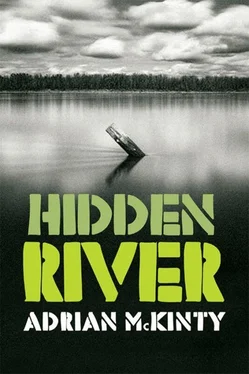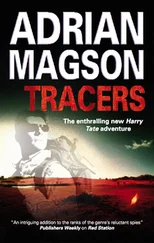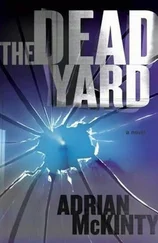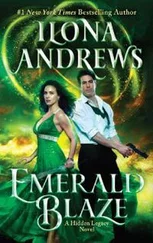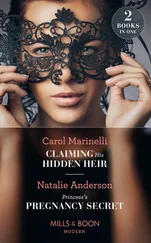“I golfed the ring of Kerry once,” Sean says.
“Is that so?”
“Rained every day. Miserable. Yeah, look, about the room. How picky are you?”
“We want anywhere, we’re desperate.”
“It doesn’t necessarily have to be a hotel, right? Just a room, right?”
“Yeah.”
“Let me see your passports.”
We take out our passports, show the man, they’re British passports but they’re registered and stamped in Belfast. He doesn’t notice I gave him a fake name, seems satisfied.
“Yeah, look. If Pat lets you, there’s a building, a few blocks east on Colfax. Noisy out there, but Pat’ll let you stay for, I don’t know, ten bucks a night.”
“That’s fine, anything,” I say.
“Finder’s fee, give me twenty bucks, see what I can do,” Sean says.
I give him twenty bucks.
“Ok, it’s late. I’ll call Patrick and see if it’s ok,” he says, picks up the phone, dials a number.
“Sorry, Pat, I knew you’d be up. Yeah, I know, me too, but at least I’m paid for it. Couple of possibles for you. I told them you’d charge ten bucks for that room. Irish kids…. No, from Ireland, for real…. They seem ok, one looks like Big Foot on a bad hair day, the other, I don’t know, Val Kilmer’s skinny brother.”
He puts down the phone.
“Pat says you can come over. You’re very lucky, you can have one of the furnished rooms for a while. It’s on the fifth floor. He’ll meet you in the lobby.”
We walk all the way from the youth hostel to the building. Not just a few blocks. Twenty bloody blocks. The front door is open. We go in. No sign of Pat. The elevator is busted, too, so we hike up to the fifth floor. On one apartment there’s a note and a key taped to the door. It says, “For the two Irish boys, I’ll see you tomorrow.”
A studio apartment. Foldout bed. Tiny bedroom — box room off to one side, kitchenette. Damp on the walls, crumbling ceiling, plastic — fake wood tiles on all the floors. Small bathroom, a great view over Colfax and the mountains to the west.
“It’ll do,” John says.
“I want the bed in the wee room,” I tell him.
John is too exhausted to argue. I slouch into the little room and close the door, John bursts into tears and weeps for I don’t know how long, since within ten minutes I’m out for the bloody count.
John woke first. He’d had trouble resting on the pullout bed. There were no sheets and it was far too hot to kip in his sleeping bag. I’d had a good night since I’d brought a sheet bag and a sleeping bag to America. We checked out the apartment, small but surprisingly tidy. We learned later that Pat cleaned it when he was healthy. We climbed out onto the fire escape to examine the view. We were only about a mile east of our hotel on Broadway, but Colfax Avenue was a different animal. This was the original way into the city for travelers heading west and you could still see the traces of the old frontier town under the facades. No tall buildings, and if you evacuated the cars, the concrete road, the fast-food restaurants and tattoo parlors, it could have stood in for Hadleyville in High Noon . And it seemed hotter here, a seething heat that mingled with the vehicular pollution.
It also appeared to be one of Denver’s few black neighborhoods, or if not black, certainly poorer. East Colfax was the opposite of everything that Boulder stood for. Down at heel, black, grungy, dirty, honest, and a little bit scary. I liked it.
John, however, was horrified. Where I saw character in the odd derelict building or empty lot, he saw Berlin, June 1945, or—
“Bloody West Belfast on a bad day,” he said. “Not the way I imagined America at all.”
Before I could reply, a knock at the door. We climbed in off the fire escape, opened the door.
Patrick. Six feet tall, a hundred pounds, pale as a banshee, red eyes, cold sores, coughing, in fact, full-blown AIDS. Patrick O’Leary was thirty-three, about a year ago he’d been a two-hundred-pound, ripped, good-looking firefighter. Clearly going down fast. He introduced himself, claimed we were in the second-nicest apartment in the building, showed us how the appliances worked, made us coffee, told us his whole story. When we heard about the AIDS, neither John nor I drank the coffee. He was from Fort Morgan, Colorado, and had been a nine-year veteran paramedic with the Denver Fire Department; unfortunately the DFD had fired him as soon as they had found out that he was HIV positive. The union could see the fire department’s point of view, claiming he put at risk not only patients but also his fellow coworkers. He had lied about his condition too, so the union denied him benefits. He was in the middle of a lawsuit with the union and the fire department, but that, he admitted, would be settled long after he was dead.
Pat, though, had a friend in the DFD who owned a few buildings in Denver and who had let him stay rent-free in this place. All Pat had to do was keep the building as full as possible of tenants but it was harder than it looked, only four apartments were properly furnished, it had erratic plumbing, worse heating, it occupied a dangerous part of town, it had no super and no one to do maintenance. Also Denver was undergoing a building boom, they had closed the old air force base at Lowry Campus and thousands of much nicer lots were becoming available. The suburbs were opening up to the east around Aurora, to the west at Lakewood, and in the south around Littleton. Rich people heading out where they thought it would be safer for their kids. And in 1995 Denver the last place anyone wanted to live was the seedy strip around Colfax Avenue, liquor stores, porn stores, prostitutes, and junkies and everything grown worse since it had become a feeder road for the new airport.
Pat told us that in the other furnished apartments were a retired schoolteacher in his seventies, a nurse in her fifties, and an Ethiopian family of six on the first floor.
Pat was the de facto landlord, took a minimal rent, listened to no complaints, carried a gun. We told him that we were in Denver for only a couple of days until we could change our ticket and fly back to Ireland. He said we should stay longer, that the neighborhood wasn’t as bad as it looked and they had finally dealt with the roach and rat problem with a sonic vermin device. Comforting to know, but our minds were made up.
Pat had a phone in his apartment. We could use it.
I called British Airways. To change our departure flight would cost only a hundred dollars. I changed the tickets. I hung up. That was that. Our American adventure was done. Ending in shambles and disaster. Finito. We were all set to go and we would have gone, flying Denver to London, London to Belfast, and Victoria’s murderer would never have been found and I would have been assassinated by a secret cadre inside the RUC within twenty-four hours of landing on Irish soil, had not Patrick, at that precise moment, said:
“Boys, listen, make any call you like, I get ten cents a minute to Ireland.”
“Any call?” I said.
“Yeah.”
“Well, I could call up my dad and let him know we’re coming back,” I said after a pause.
“Go ahead,” Pat said.
I dialed the number for home. Dad picked up after a minute.
“Noel, is that you?” he said.
“No, Dad, it’s me.”
“Alex,” he said, “it’s good to hear from you. I thought it was Noel with the new flyers. The Green Party in Dublin gave me a hundred pounds and—”
“Dad, I’m coming home,” I said, ignoring him.
“Did you find anything out?”
“Yeah, the man who sent the note is just a local nut, nothing to do with anything. But as a matter of fact, I think the police have arrested the wrong man. I’m pretty sure they’ll release him soon. He’s got a good lawyer and I think I’ve helped him a bit. They’ll be opening the case again, it’s the cops’ job now, nothing more I can do. Coming home.”
Читать дальше
